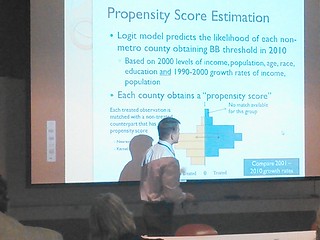Then adults fail to provide sufficient education for U.S. children to succeed in an educated world. But we can change that. Korea and Finland did, and we can, too.
Kimberly Hefling wrote for AP Tuesday, American adults score poorly on global test,
In math, reading and problem-solving using technology—all skills considered critical for global competitiveness and economic strength—American adults scored below the international average on a global test, according to results released Tuesday.
Adults in Japan, Canada, Australia, Finland and multiple other countries scored significantly higher than the United States in all three areas on the test. Beyond basic reading and math, respondents were tested on activities such as calculating mileage reimbursement due to a salesman, sorting email and comparing food expiration dates on grocery store tags.
Too bad they didn’t test picking political candidates to elect. Apparently at least a minority of U.S. adults failed that, too. I would quote from the actual test, but this is what we find at ncs.ed.gov today:
Dear Users,
Due to a lapse of appropriations and the partial shutdown of the Federal Government, the systems that host nces.ed.gov have been shut down. Services will be restored as soon as a continuing resolution to provide funding has been enacted.

Ah, that’s just the U.S. participant in the survey. The OECD actually did the international survey: About the Survey of Adult Skills (PIAAC),
The Survey of Adult Skills is an international survey conducted in 33 countries as part of the Programme for the International Assessment of Adult Competencies (PIAAC). It measures the key cognitive and workplace skills needed for individuals to participate in society and for economies to prosper. The first results from the Survey were released on 8th October 2013.
The evidence from this Survey will help countries better understand how education and training systems can nurture these skills. Educators, policy makers and labour economists will use this information to develop economic, education and social policies that will continue to enhance the skills of adults.
Here’s the actual report, plus OECD video:
Life skills, such as communicating and meeting deadlines, are as important as diplomas and qualifications in the workplace.
Too bad nobody would fund the CHANCE program that was about exactly that.
This adult failure affects the future of younger Americans, too. Back to the AP story:
Not only did Americans score poorly compared to many international competitors, the findings reinforced just how large the gap is between the nation’s high- and low-skilled workers and how hard it is to move ahead when your parents haven’t.
In both reading and math, for example, those with college-educated parents did better than those whose parents did not complete high school.
The winners? Finland and Japan. You remember Finland, also at the top of the world in education where educators make education decisions and get paid like doctors and lawyers, where there are no private schools, and
“Real winners do not compete.”
This is what Finnish schools do:
Since the 1980s, the main driver of Finnish education policy has been the idea that every child should have exactly the same opportunity to learn, regardless of family background, income, or geographic location. Education has been seen first and foremost not as a way to produce star performers, but as an instrument to even out social inequality.
They come to school hungry; they come to school homeless.
How about we change that?
Don’t say it can’t be done. Korea is among
Three lowest performers among 55-65 years oldYet
AndSecond [only] to Japan among 16-24 years olds
Young Koreans better at reading and maths than Italian university graduates
Similarly, in Finland, older people are average, while younger Finns are among the best worldwide.
I think any employer around here can attest that many U.S. college graduates read at about 8th grade levels. But it doesn’t have to be that way. Korea and Finland did it, and we can do it.
 Not coincidentally, Finland (like Japan) is also
among world leaders in Internet speed and uptake.
If we want better education and a better economy, maybe we should
get more people here using fast affordable Internet access.
All that and possibly
increased house prices, too.
Not coincidentally, Finland (like Japan) is also
among world leaders in Internet speed and uptake.
If we want better education and a better economy, maybe we should
get more people here using fast affordable Internet access.
All that and possibly
increased house prices, too.
-jsq
Short Link:
